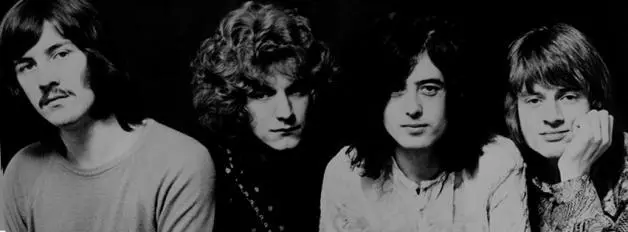
Led Zeppelin, one of the most iconic rock bands of all time, produced numerous masterpieces during their career, but when Robert Plant described a particular song as “perfect,” he was likely referring to “Stairway to Heaven.” Released in 1971 on the album *Led Zeppelin IV*, this track has become synonymous with rock music and is often heralded as one of the greatest songs of all time.
“Stairway to Heaven” is a profound journey that combines elements of folk, rock, and progressive music. The song begins with a gentle acoustic guitar melody, accompanied by a recorder that sets a mystical tone. Plant’s ethereal vocals introduce the listener to a woman who is searching for a stairway to heaven, symbolizing a quest for meaning and fulfillment. The lyrics are layered with metaphors and vivid imagery, inviting multiple interpretations and resonating with a wide audience.
As the song progresses, it gradually builds in intensity. The transition from the calm, reflective beginning to the explosive guitar solo by Jimmy Page is masterful. This evolution mirrors the journey of life, with its twists, turns, and climactic moments. Page’s iconic guitar work, especially the solo towards the end, is often cited as one of the most recognizable and revered in rock history. The combination of his technical prowess and emotional expression elevates the song to a near-spiritual experience.
The rhythmic shift and dynamic changes throughout “Stairway to Heaven” showcase the band’s exceptional musicianship. John Paul Jones’ multi-instrumental contributions, particularly on the keyboards and the recorder, add layers of complexity, while John Bonham’s drumming anchors the piece, providing a powerful backbone as the song crescendos.
Lyrically, “Stairway to Heaven” touches on themes of materialism, spirituality, and the human experience. The narrative poses questions about life choices and the search for deeper meaning, encouraging listeners to reflect on their own paths. The phrase “And as we wind on down the road” suggests a journey that is both personal and universal, a reminder that we are all on a quest for understanding and connection.
The song’s reception has solidified its status in rock history, often performed at concerts and hailed in numerous lists of the greatest songs ever. Its timeless appeal continues to captivate new generations, making it a staple in popular culture. Robert Plant’s acknowledgment of its perfection speaks to its artistic merit and emotional resonance.
In essence, “Stairway to Heaven” encapsulates the essence of Led Zeppelin: innovation, artistry, and the ability to connect with listeners on a profound level. Its seamless blend of musical styles, poetic lyrics, and powerful instrumentation creates a listening experience that is both reflective and exhilarating.
In a world that often feels chaotic, the song offers a moment of introspection and wonder. Plant’s description of it as “perfect” is not merely a testament to the band’s talents, but an acknowledgment of the song’s enduring impact—a piece that invites exploration and evokes emotion, transcending the boundaries of time and genre.

